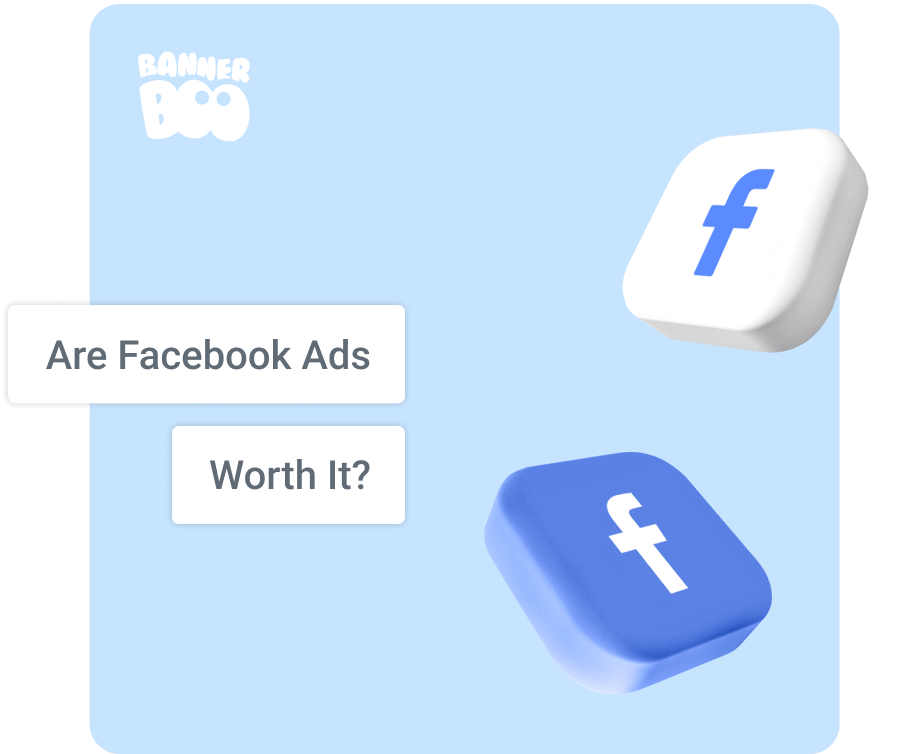
Choosing the right advertising channel for business promotion is crucial, and marketers often lean towards options with the highest ROI. It's not surprising, considering that the primary goal of advertising is boosting sales. Every brand aims to attract more customers and increase average transaction values. Social media, especially Facebook, boast significant traffic and are regarded as top-tier digital channels. But is this reputation truly justified? Let's delve into this topic more thoroughly!
Over its many years of existence, Facebook has transformed from a mere social network into a formidable advertising powerhouse. It's not just a place to connect with friends; it's a robust tool for businesses to engage with their target audiences. Enter Facebook Ads — the catalyst that ushered in the age of targeting and personalized advertising. The company has dedicated substantial effort to gather data, fine-tuning advertising algorithms. This has resulted in a sophisticated system that optimizes campaigns, offers diverse ad formats, and provides comprehensive analytics tools.
Unlike traditional means of advertising, ads on Facebook are dynamic, adapting to user behavior, interests and demographics in real time. The platform has all the possibilities: from static banners to interactive video campaigns, so that every business can deliver convincing offers and create emotions that resonate with the needs of the audience.
Still not sold on the idea that Facebook advertising fits every business like a glove? Here some statistics (according to data https://thesocialshepherd.com):
51% of the overall advertising budget was spent on social media advertising;
20% is the share of the digital advertising market in Facebook (more only on Google);
average conversion rate for ads in Facebook (or CTR) is 9-10%;
41% of respondent marketers claimed that Facebook gave them the best return on ad spend (ROAS).
How do Facebook Ads affect on business?
Main task: increase brand recognition, attract potential customers and encourage conversions. Many active users representing different demographics, interests and geographic regions create favorable conditions for launching advertising campaigns of various industries.
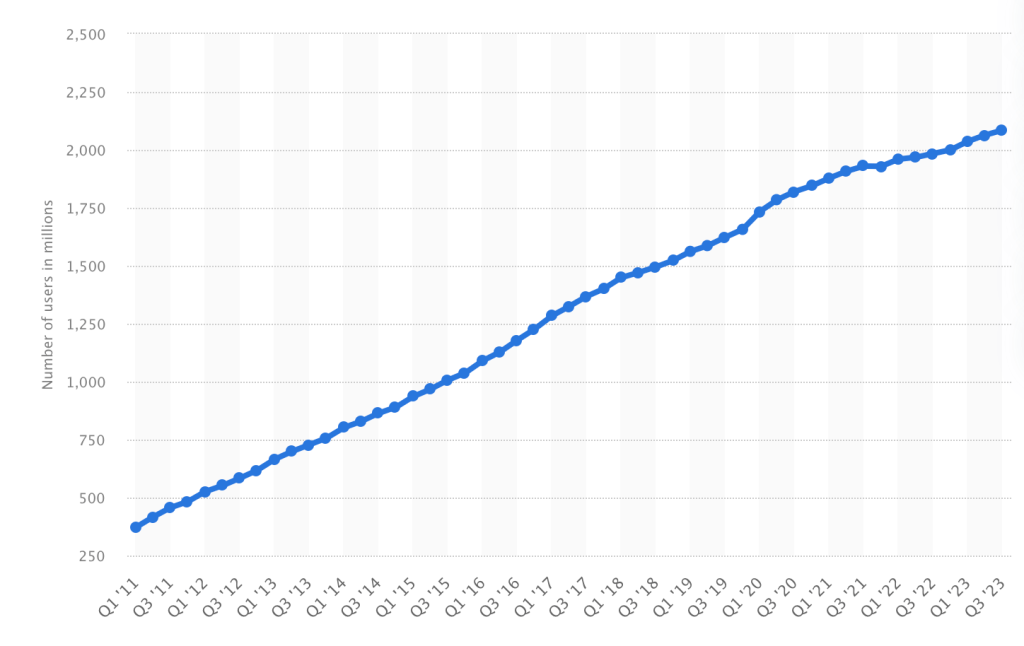
* material from the site https://www.statista.com
Like any platform, Facebook has its advantages and disadvantages. Understanding them means navigating the rules of advertising and integrating them into the marketing strategy of a business.
The coverage factor is the wild card up Meta's sleeve. Facebook captivates with its audience's dynamic involvement, a cornerstone in propelling the advertising platform to success.
Facebook - the third site in the world by the number of visitors (according to data https://thesocialshepherd.com more only in Google and YouTube). If someone is online, then most likely on Facebook (or on Instagram, which is also owned by Meta). The reach that the platform provides to advertisers is still unmatched and is likely to remain so for a long time to come.
These are different age groups, geographical locations, interests, professions and cultural backgrounds. This diversity allows advertisers to tailor their campaigns to specific audience segments in specific countries, ensuring that their messages will truly resonate with the needs of a specific consumer.
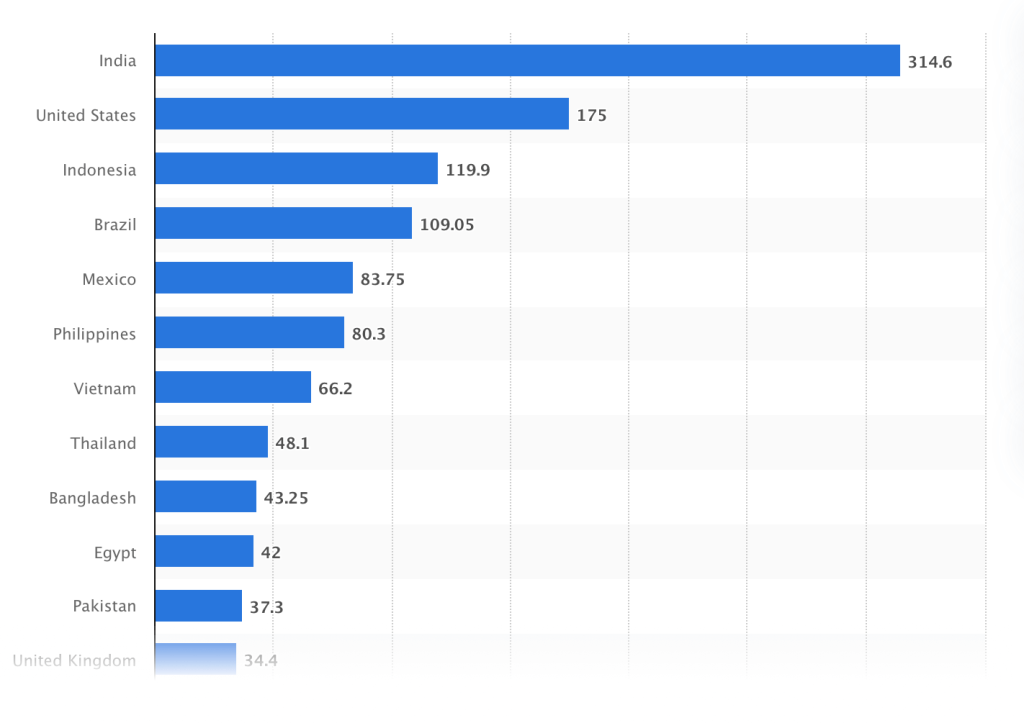
Leading countries by Facebook audience size as of January 2023 (in millions)
* material from the site https://www.statista.com
On average, a person spends almost 2.5 hours a day on social media platforms, and on Facebook also (according to https://eclincher.com). This high level of interaction offers advertisers a long-term contact with the target audience, making it more likely that their messages will be seen and received.
Local businesses enjoy a distinct advantage by tapping into the potential customer base in close proximity — literally, with geolocation parameters set within a radius of at least 1 km. This strategy not only garners the attention of nearby residents but also fosters communication, all while working within small budgets.
*example of a Pets template by BannerBoo
There are also good opportunities for large corporations: create multilingual content, localize the display of ads (countries or regions) to expand your reach and create a presence in international markets.
*example of a Real Estate template by BannerBoo
Facebook encourages the exchange of content between users, promoting the dissemination of information, trends and product recommendations. When used effectively, this exchange dynamic can increase the reach and impact of advertising campaigns.
The Facebook platform allows users to interact, comment, like and share relevant promotional messages, generating additional sharing from the audience itself. This only adds to the motivation of businesses to create such advertising and design that want to share.

Any business, regardless of size, format, type of products or services, has an equal condition to showcase its offerings to the right audience. This makes it possible to successfully compete in the digital market.
For startups and small business, Facebook offers cost-effective tools of reaching a wider audience and involvement new customers, which allows them to develop dynamically and expand their presence in the markets.
Ads can be shown according to what you need. Facebook calls it “objectives”. Whether you want post engagement, site clicks, page likes, or something else entirely, you can build ads based on that.
The global reach of active users, coupled with the robust targeting capabilities and interactive functionalities on Facebook, renders the platform enticing for companies seeking to connect with audiences worldwide.
What functionality helps business actively develop, using the full potential of the advertising platform? We'll delve deeper into this.
This forms the cornerstone of effective Facebook advertising—the bedrock of quality campaigns. The advertising algorithms provide an extensive array of parameters, enabling detailed audience segmentation:
age (to adapt messages according to different age groups);
gender (orientation of the brand to a male or female audience, or focusing on specific needs);
location (point, location, region or country - for high-quality localization).
interests and hobbies of users (sports, music, travel) to match the offers with the interests of the audience;
the behavior on Facebook: frequency of purchase, use of devices and gadgets, time spent online, etc.
custom audiences allow you to upload customer lists, email addresses, phone numbers, or site visitor data to create interesting segments, groups, and target users, who have already interacted with the company;
lookalike audiences (LAL): using the characteristics of existing customers, Facebook creates similar audiences, expanding the reach of potential new customers.
It can be a company page, an application or an event from the company. You can also target friends of people who have interacted with the business, using the audience's social connections for wider and faster coverage of the right users.
custom audience: with the help of Facebook Pixel on its sites, businesses can create remarketing lists to communicate with users who have visited certain pages or performed certain actions on the site;
dynamic ads allow you to personalize retargeting by displaying relevant products or content to users based on their interaction with the site or applications.
Birthdays, anniversaries, new jobs or relationships are important events that allow advertisers to create timely and relevant advertising campaigns.
The advantages of such detailed targeting on Facebook:
effectiveness of advertising costs: by targeting specific demographics, interests and behaviors, brands can optimize their ad spend by reaching those most likely to engage or convert;
higher relevance and engagement: tailoring ads to a specific audience ensures that the content resonates with users, paving the way for increased involvement and an uptick in campaign performance;
high return on investment: effective targeting brings more conversions or sales;
ad personalization: relevant ad campaigns maximize the effectiveness of ad budgets.
To make the most of targeting and effectively work with audience segmentation, you need to have a wide selection of advertising formats. And here Facebook has a large selection, so each business found a suitable one.
This is the simplest format: one image and text (preferably a minimum).
Suitable for: promoting products, goods and services, events or building brand awareness.
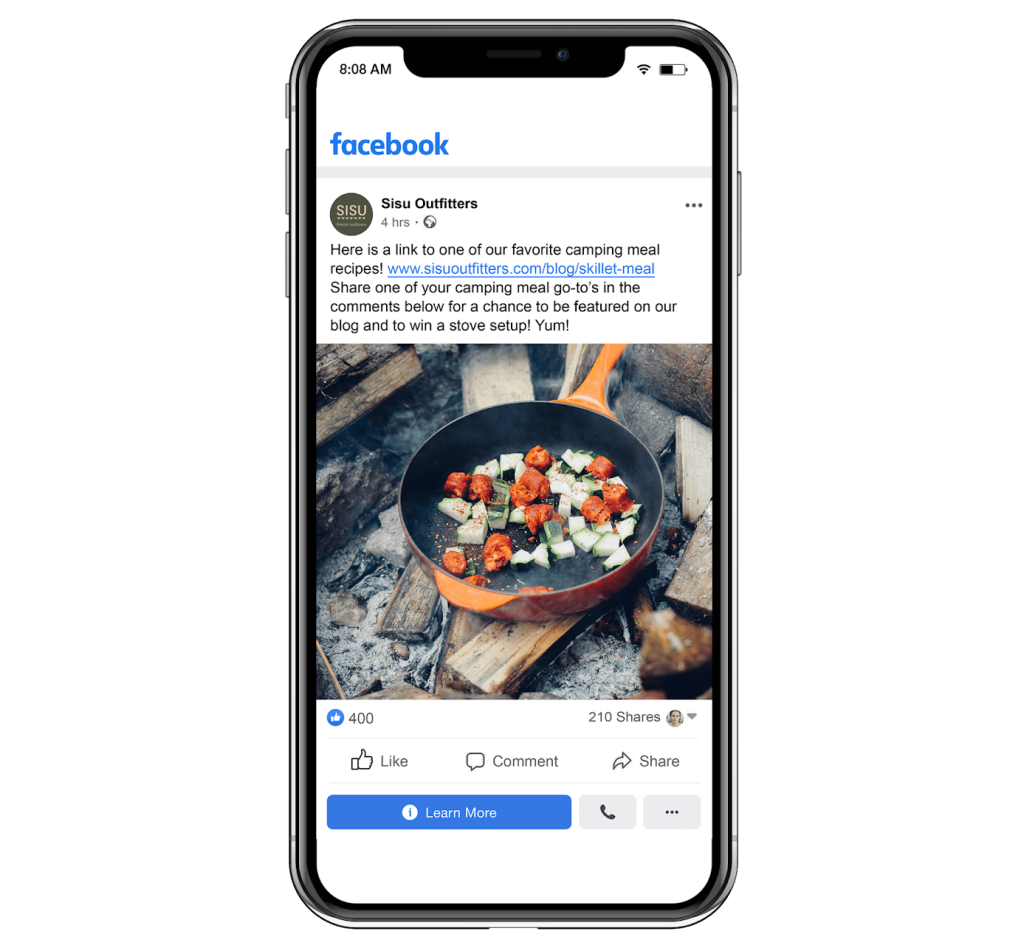
Uses animation, movement, sound and stories, to draw attention to a key message.
Good for: Showcasing products in action, sharing feedback or special stories.
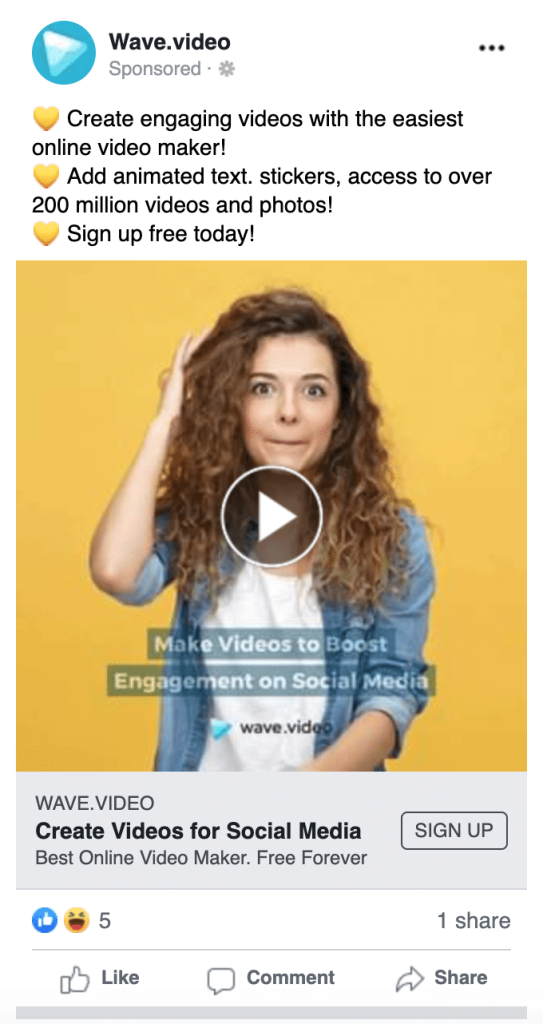
Allow multiple images or videos to be displayed in one ad unit.
Suitable for: displaying multiple products, categories, services, options or providing step-by-step instructions.
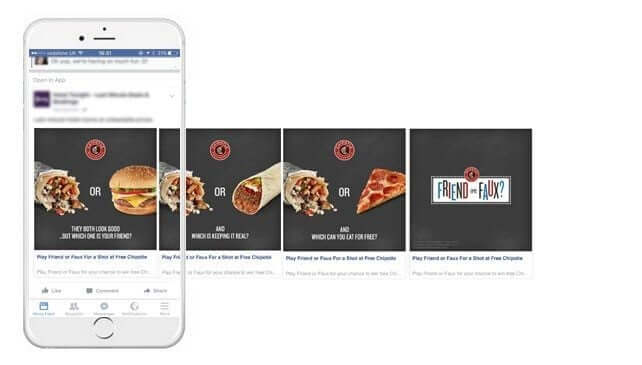
Simple videos designed from images that change with animation.
Suitable: for multi-faceted content presentation, when there is no resource for creating professional videos.

This is a full-fledged ad that is built on top of the Facebook store.
Suitable: for e-commerce projects, where the main goal – selling.
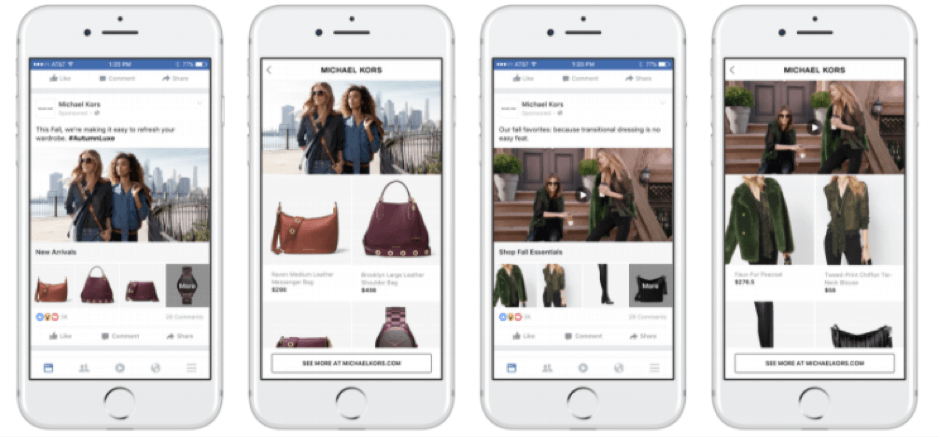
Custom mobile-optimized full-screen ads that load instantly on click.
Suitable: Perfect for small business, when there is no full-fledged site to demonstrate the entire assortment or a detailed description of the product.
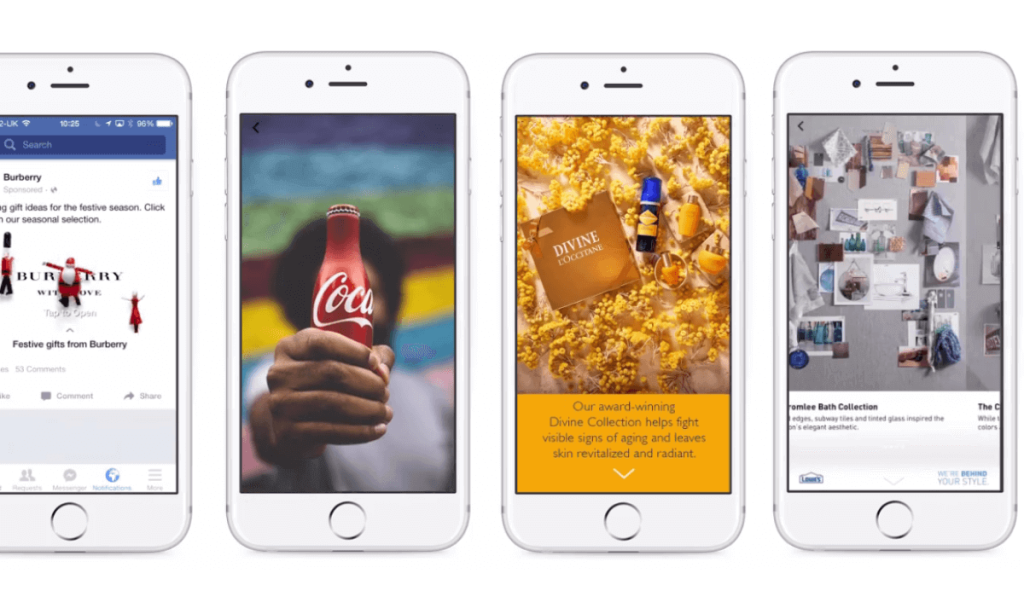
A short questionnaire to clarify contact information to create a special offer for a client or discuss order details.
Suitable for: complex products that have specific features or require individual calculations for consumers.
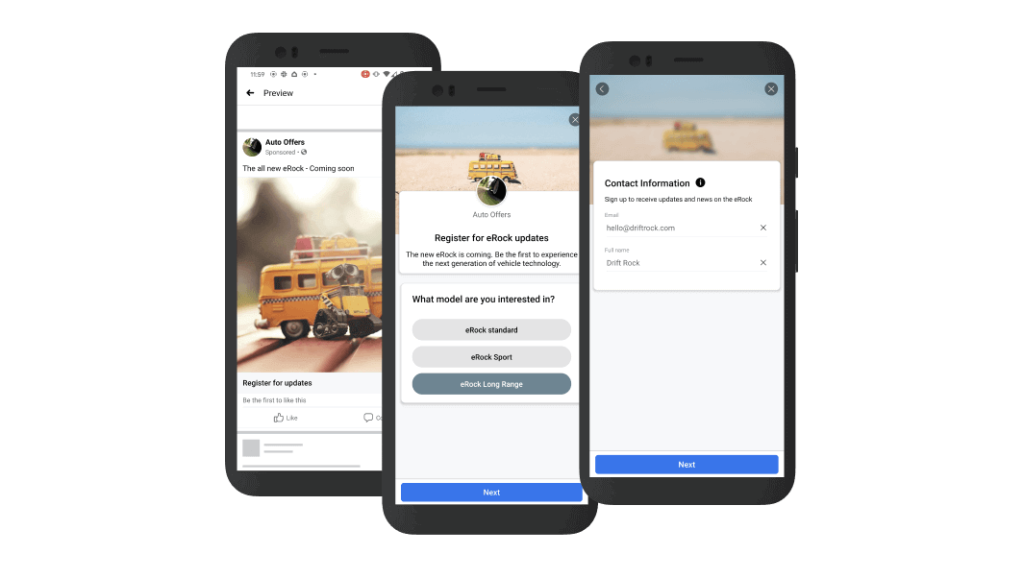
They allow users to preview a game or app before installing it.
Good for: Games or app advertisers to showcase experience and encourage installation.
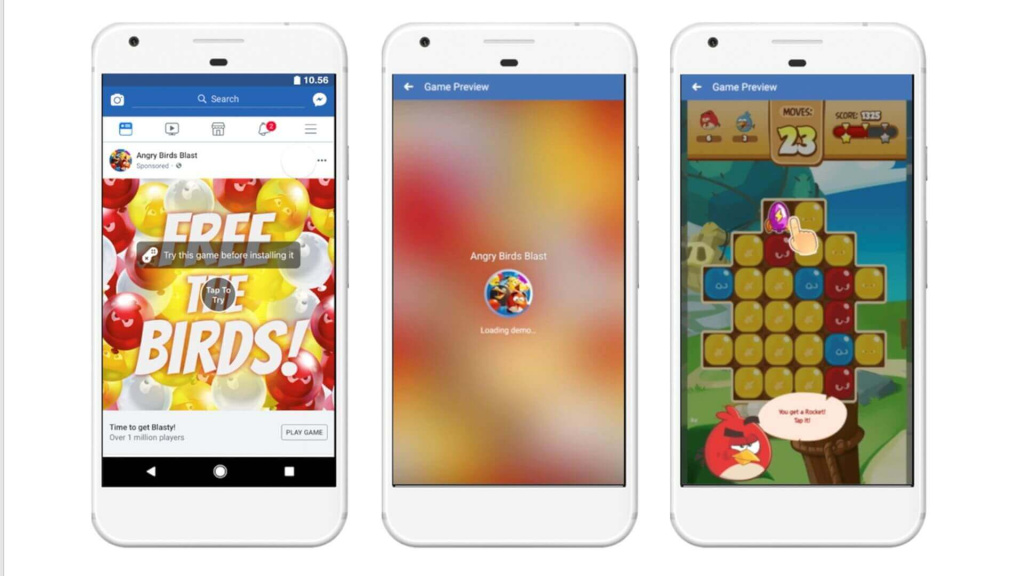
Advantages of various Facebook ad formats:
versatility (suitable for various advertising objectives, allowing advertisers to choose the most appropriate);
interaction (you can try different ways of involvement attention to users);
level up conversions (when the format is interesting to the audience, it automatically affects the higher conversion rate and better efficiency).
Monitoring advertising performance is just as important as proper technical setup or creative banner design. Facebook provides a complete set of tools for tracking the effectiveness of advertising campaigns:
Facebook Ads Manager (displays key indicators that are needed for analysis: reach, impressions, clicks, results, budget and costs for each campaign);
reports that can be customized to the needs of the advertiser (tracking specific KPI and other indicators that correspond to campaign objectives);
performance metrics (such as likes, shares, comments, and reactions that help measure user engagement with a specific ad);
CTR (measures the ratio of users quantity, who clicked on the ad, to the number of ad impressions, which indicates relevance and effectiveness);
conversion tracking (targeted user's action after clicking on an ad, such as a purchase, registration or installation of applications, which allows you to measure the return on investment);
audience statistics (detailed information on demographic indicators, interests, time of contact with advertising and audience behavior);
A/B testing (allows advertisers to show different ad variations to determine which formats, images, text or CTA are more relevant to the target audience);
attribution model (allows you to set time frames for attributing conversions to specific ad interactions, providing statistics about the customer journey).
Of course, in digital advertising, there are certain issues that require control and finding solutions for their leveling. Let's consider them.
Undoubtedly, one of the key problems of advertising networks is the oversaturation of brand offers in the digital space.
a large volume of advertisers (even one active campaign multiplied by hundreds of thousands of advertisers creates a large volume of advertising);
duplicate content (users may repeatedly encounter similar or identical ads, which creates a feeling of monotony);
decrease in the level of involvement (users lose interest in the content offered);
negative perception of brands (excessive advertising can lead users to associate negative feelings with the brand or ignore it altogether)
What can you do to alleviate ad fatigue?
control the frequency of ad display (how often user sees a specific ad during a certain period of time);
regularly update advertising materials, messages and formats (which will help fight monotony);
work on accurate targeting (choose only consumers interested in your product);
use only high-quality banners (those that will definitely capture and retain the attention of users);
test various formats (the same content, but presented in a different form, will reduce advertising fatigue);
respect the privacy of users (don't target specific interests, demographics, or locations in your ad).
Constantly developing, Facebook often changes algorithms. And this significantly affects both the organic reach and the effectiveness of advertising.
a decrease in the number of people who see your posts in their feed (even if they are subscribed);
Facebook prefers content from family, friends and groups over advertising or branded content;
algorithms give priority to content that has a high chance of attracting the attention of users (brands have no choice but to constantly generate interesting ideas).
increasing importance and necessity of paid coverage (i.e. investment in advertising becomes a key factor in ensuring visibility of the company);
ad delivery (algorithms affect how and to whom ads are shown);
importance of advertising relevance (quality ads that are relevant to the needs of the target segment of targeting).
What to do to reduce the impact of Facebook algorithm changes?
focus on quality content (create story, which attracts the attention of potential buyers);
experiment with different ad formats (video, broadcast, stories and interactive publications);
create communities around the brand (facilitate discussion and commenting on posts);
plan advertising strategies (targeted paid advertising will be crucial to reach the desired audience and compensate for the decline in organic reach).
Advertising expenses on Facebook can fluctuate due to various factors, and they significantly affect the capabilities of small businesses:
the level of competition (increasing the number of advertisers can increase costs, especially during periods of peak advertising, holidays or major events);
seasonal fluctuations (certain times of the year are more competitive or require higher advertising costs);
constant evaluation of advertising relevance (Facebook algorithm considers ad relevance, so low-quality or less relevant ads may cost more to reach the same audience);
increasing prices for interaction with narrowly specialized audiences (broader audiences may have lower costs, but competition is higher);
different costs for different formats and types of ads (video ads usually has higher production costs but potentially cheaper impressions).
Strategies for small business:
budget planning (anticipate possible fluctuations in advertising costs and allocate budgets accordingly, taking into account peak seasons and industry trends);
detailed targeting (choose the most relevant audience, reducing the cost of reaching it, showing perfectly thought-out advertising);
adapt and experiment with advertising campaigns (to find cost-effective approaches);
prioritize high-quality, relevant content (potentially reducing costs due to increased involvement and conversions).
Creating effective Facebook advertising campaigns involves a combination of strategic planning, creation of creative content, correct targeting of relevant audiences, and constant optimization.
Here are some tips to help you take advantage of the opportunities in advertising platform to the maximum:
identify clear objectives and target audience (a clear understanding of what you want to receive from a potential client is the key to successful advertising);
segment the audience and study each segment in detail (demographics, interests, behavior, etc.);
choose modern visual concepts (quality images or videos that attract attention and correspond to your message);
work on strong copywriting (concise, persuasive text that will clearly communicate your value proposition and drive action);
use A/B testing (experiment with different ad formats, images, headlines or calls to action to determine what resonates best with your audience);
choose interactive formats (carousel ads versus single image or video ads, choose the perfect combination);
add a strong CTA (which encourages conversion);
optimize your ads for mobile users (a significant part of them use Facebook through mobile devices);
use remarketing (advertising to custom audiences based on site visitors, customer lists, or similar audiences to reach new potential customers, similar to your existing customers);
use the Facebook Pixel and conversion tracking;
set a realistic budget and track advertising performance (key KPIs: CTR, conversion rate and ROAS to measure ad performance);
optimize based on the results obtained (analyze statistical data to determine what works and what needs improvement);
follow Facebook's advertising policy (to avoid disqualification or fines).
Using special services and tools makes it much easier to create high-quality visual content. Among such tools, BannerBoo’s Facebook Ad Maker can be singled out. Its functionality is maximally adapted to the user and covers all needs.
*example of a Gaming template by BannerBoo
Should you advertise on Facebook? Definitely yes!
The platform unfolds immense potential for companies, providing access to a vast audience, precise targeting options, and a plethora of ad formats. Yet, it's crucial to acknowledge certain limitations, including user fatigue from ads, algorithm shifts impacting organic reach, and fluctuations in costs.
After all, the effectiveness of Facebook ads hinges on strategic planning, content quality, continuous optimization, and adaptability to changes. Brands need to assess if the advertising aligns with their strategic and tactical goals, targets the right audience, and fits within the available budget before taking the plunge.
Yes, budgeting for Facebook ads is worth it, given the platform's broad reach, powerful targeting capabilities, and variety of ad formats. However, overall success depends on strategic planning, quality content, and constant optimization.
Yes, as of 2023, Facebook advertising remains a valuable marketing tool. Despite certain challenges (which are common to every ad network) like ad fatigue and algorithm changes, businesses can succeed by adapting strategies, setting realistic goals, and taking full advantage of Facebook's advertising features.
Absolutely, the popularity of Facebook ads is enduring and likely to stand the test of time. With a vast user base, sophisticated operational parameters, and robust analytical tools, it remains a formidable tool for businesses. Nevertheless, staying abreast of current trends and adapting advertising strategies to the ever-evolving business landscape is crucial.
The effectiveness of a $100 Facebook ad budget depends on various factors, including your campaign objectives, target audience and competition in the industry.
The success rate of Facebook advertising depends on many factors:
business industry;
quality of advertising;
targeting accuracy;
budget.
Regular monitoring of key performance indicators (KPI) and optimizing campaigns can indeed enhance the conversion rate over time, ultimately contributing to the overall success of the advertising efforts.
The ideal budget for Facebook advertising depends on your specific objective, target audience, and industry. It is recommended to start with an optimal budget, and gradually increase it depending on the results obtained (often businesses accept the budget as a percentage of the received sales).
Yes, 100%! Facebook advertising is very useful for small businesses. It provides cost-effective targeting that allows small businesses to reach a specific audience on a budget.
Effectiveness depends on campaign objectives. Video ads, carousel or collections are often effective for attracting attention, while lead ads, for example, are suitable for driving specific actions.
The time to start advertising on Facebook depends on your business goals and readiness. Make sure you have a clear understanding of your target audience, thoughtful ads, and a well-defined strategy before launching your campaigns.
Facebook ads can be a good investment if they fit your business goals and are implemented strategically. Regular monitoring, optimization and adaptation to market changes are key to maximization return on investment (ROI) from Facebook advertising.